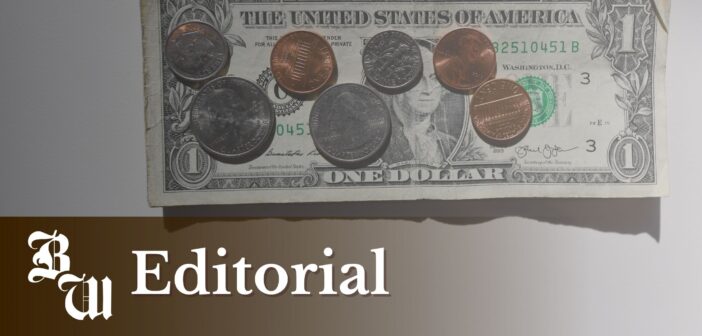Lehigh boasts a $2 billion endowment, generous financial aid and aspirational strategic plans.
These things seemingly intersect with the announcement of The Lehigh Commitment, an initiative which states that students whose families make less than $75,000 annually will no longer pay tuition starting in the fall of 2024.
This doesn’t erase the fact that college price tags, including Lehigh’s, continue to rise to brazen numbers with no signs of slowing down.
Between 2022 and 2023, the total cost of tuition in billable and non-billable fees increased from $79,415 to approximately $81,150 — an increase of almost 4%.
So while efforts to make elite institutions more affordable to underprivileged applicants are certainly admirable, they may not be enough to negate the inherent exclusivity imposed by schools like Lehigh.
In the wake of affirmative action being repealed, we wondered if moves like The Lehigh Commitment were created in the spirit of attracting a more diverse student body.
When asked for comment on this, Amy White of the Office of Communications and Public Affairs wrote, “This is an effort to bring the most talented and motivated students to Lehigh regardless of family income and ability to pay the full cost of Lehigh tuition.”
In conjunction with this comment, White wrote that regardless of race or ethnicity, the hope is that “more lower-income students will see Lehigh as a viable option for them.”
Of course, students still have to get in. Free tuition only helps after the fact.
And there are other monetary factors that make the playing field of college admission even more complicated.
According to a study by Opportunity Insights, a group of Harvard-based economists, roughly 40% of the wealthiest students with 99th percentile SAT or ACT scores attend Ivy Plus colleges. This is double the rate of their equally qualified but poorer peers and four times that of middle-income students.
This might have something to do with the fact that these schools were made for and by the upper echelon of society.
The obstacles that stand in the way between a student and many elite colleges are often not equalizers — standardized test tutors, essays and extracurricular options that can increase a student’s chance of admission vary from one income bracket to the next.
While The Lehigh Commitment was created to ensure that people can afford Lehigh regardless of their financial background, racial, ethnic and other minority identifiers are inevitably part of this conversation.
Socioeconomics innately includes both the social and economic aspects of one’s life. Therefore, when having these conversations and attempting to bridge financial gaps, we must consider the disproportionate barriers that minority populations face in obtaining these incomes.
In addition to the ideological shortcomings of legacy admissions, we expect wealth politics to join the spotlight of scrutiny placed on private schools.
We urge that not only reducing the financial barrier of entry for all students, especially lower-income ones, but actually accepting more financially diverse students is one of the most valuable ways to develop Lehigh into a flourishing, representative community.
There are, of course, reasons that schools like Lehigh would not be so eager to just accept poorer students. Would the outward facing prestige drop because of lowered average test scores? Would it work in demystifying the all-too-concealed admission process? And how would that affect the balance sheets?
Ultimately, freeing the cost burden for incoming students of the lowest bracket is powerful. This could be a good thing for the Lehigh community.
But in perspective with the landscape of American higher education, is this sustainable? Are ballooning costs in an ever-competitive private market going to perpetuate long-term repercussions over who gets an education?
We’re reminded that many parents making more than $75,000 still can’t afford extravagant school bills.
It’s possible, however, that this is just the start of greater affordability and a more equitable space at Lehigh — and hopefully beyond.






Comment policy
Comments posted to The Brown and White website are reviewed by a moderator before being approved. Incendiary speech or harassing language, including comments targeted at individuals, may be deemed unacceptable and not published. Spam and other soliciting will also be declined.
The Brown and White also reserves the right to not publish entirely anonymous comments.